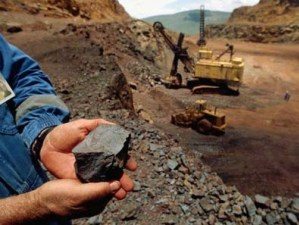
[miningmx.com] – KUMBA Iron Ore (Kumba), the company in which Anglo American has a 69.7% stake, said it faced cost pressures in its 2013 financial year as it sought to catch up lost production incurred from a one month strike last year.
Commenting in its 2012 financial and operating figures, in which it posted a 28% decline in headline earnings to R12.2bn, Kumba said it would mine up to 20 million tonnes (Mt) more waste than planned in the current financial year.
This was “… in order to make up mining volumes lost as a result of the strike” and is further to the 30 million tonnes of additional waste the company said it was required to mine in the financial year.
Increased waste mining already contributed to a 40% increase in costs at Sishen which totalled R210/t compared to R150/t in the previous financial year.
Kumba is facing more waste mining at its Sishen mine as the orebody dips in such a way that more rock has to be cleared away before the economic ore is reached. The efficiency with which it can mine the waste will determine production.
Production in Kumba’s 2012 financial year was 4% higher at 43.1Mt despite the strike. This was owing to the quicker-than-expected ramp-up at the newly commissioned Kolomela mine which was expected to reach nameplate capacity of 9Mt during the 2013 financial year.
Export sales volumes were also higher in 2012 which meant that it was a steep decline in iron ore prices that most heavily affected Kumba’s profitability. Export prices fell 23% to an average $122/t.
Nonetheless, Kumba paid a R4bn cash dividend equal to R31.70 per share. Although lower than in the two preceding financial years, the dividend still represents a yield of 6% and a 1.2 times dividend cover. The cover of the final dividend was actually better than the interim dividend and with free cash flow of R25.3m, Kumba said it remained in a healthy position.
“We will fund future capital with debt returning cash to shareholders,” said Frikkie Kotzee, CFO and executive director of Kumba since June. Kotzee said mining costs, including the two-year wage agreement finalised last year, would translate into inflation of 8.5% in the current financial year.
Budgeted capital expenditure over the next two years would be slightly lower than in the previous two. For 2013, Kumba would spend up to R5.2bn compared to R5.4bn in expenditure in the 2012 financial year. It would drop to a maximum of R4.3bn in the 2014 financial year, he said.
For the current financial year, the market would assist somewhat. Prices were expected to be “… firmer on average” than in 2012 although increased iron ore supply was a risk and could lead to a softening in price.
Generally speaking, the improvement in the global economic outlook was expected to have a positive outlook on steel demand which iron ore supplies. World steel output growth slowed to only 2% last year from 7% growth in 2011.










